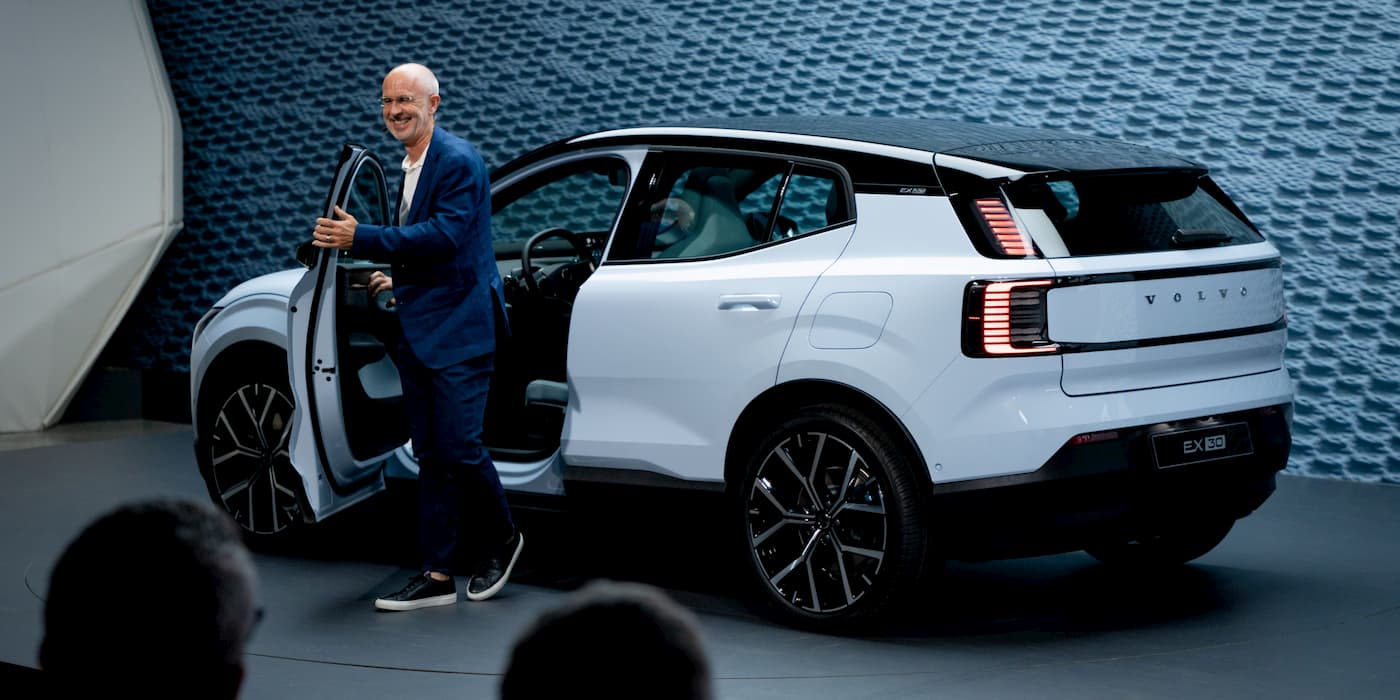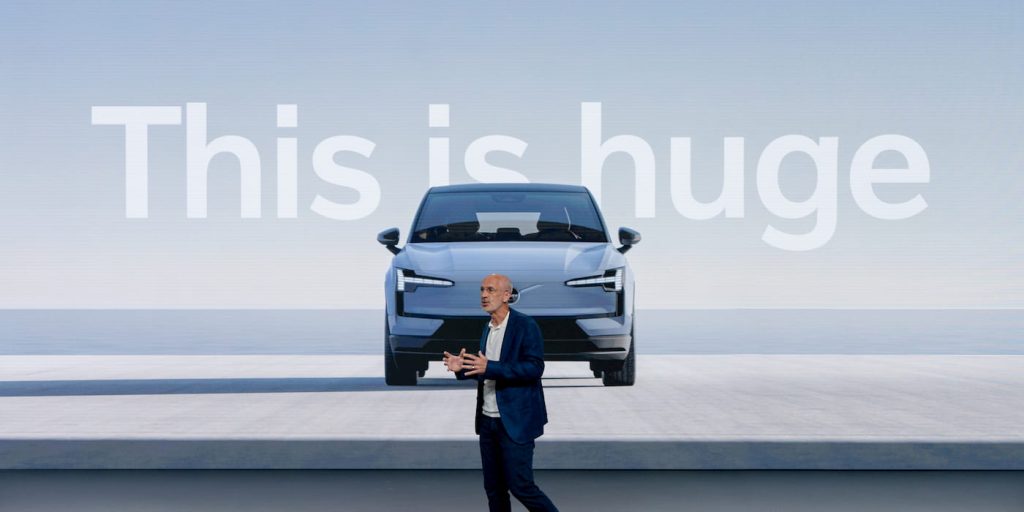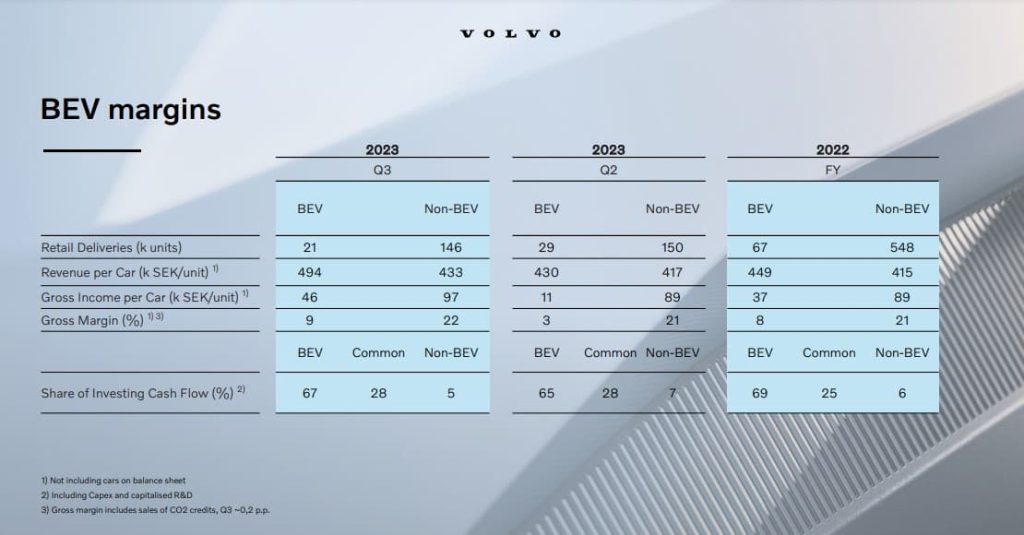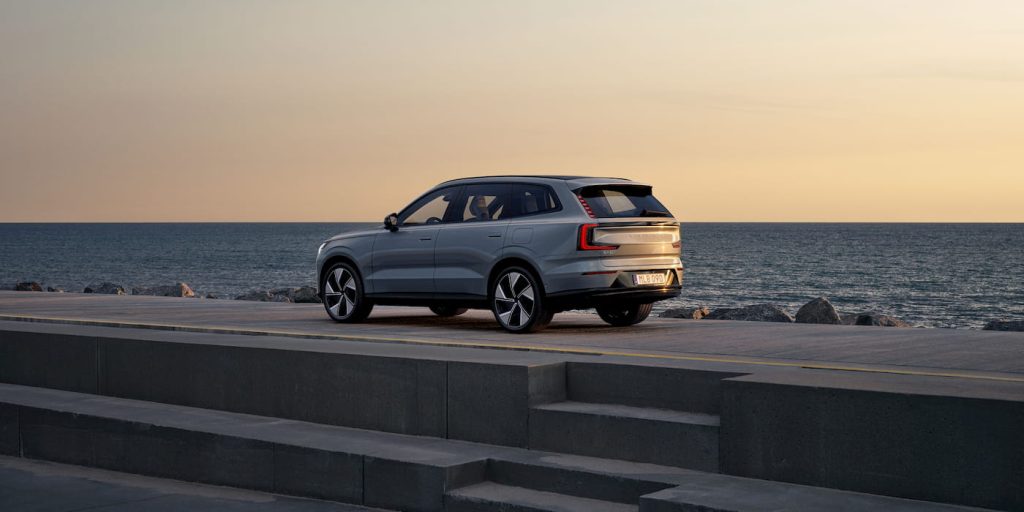
Despite recent warnings from other automakers, Volvo expects EV momentum to ramp up with three new electric models launching.
Volvo Cars released its third-quarter earnings Thursday, showing vehicle sales, revenue, and profit growth.
Volvo’s retail sales have increased for 13 straight quarters despite many key auto markets slowing down. The growth comes amid Volvo’s rapid transition to an all-electric future.
After Volvo was one of the first legacy automakers to commit to an all-EV future by 2030, the results are showing.
The automaker’s pure EV sales share reached 13% in Q3, up 111% compared to last year. Volvo says, “This underlines how Volvo cars is well on its way to becoming one of the fastest transformers in the industry.”
Volvo expects the competitively priced EX30 electric SUV launch to strengthen its position further. The EX30 will be Volvo’s most affordable EV, starting at around $35,000.

Volvo expects EV momentum to pick up with new models
The automaker significantly improved EV margins in the quarter, reaching 9%, up from 3% last quarter.
However, CEO Jim Rowan believes the company can do even better in the fourth quarter. Rowan said he expects EV margins to increase in Q4 due to lower raw material prices.

The company also expects that once the EX30 (see our review) begins shipping, it will “further boost Volvo Cars’ profitable growth in fully electric cars.”
Volvo said last quarter it expects the EX30 to boost the company’s gross margins into the 15-20% range.
Deliveries of the EX30 are starting soon. Meanwhile, Volvo will reveal its first electric minivan, the EM90, on November 12. On top of the flagship EX90 unveiled last year, Volvo has three new EVs in major segments.

Volvo said its order book remains stable while retail deliveries are on track for solid double-digit growth this year.
Although Volvo’s EV sales share is down from earlier this year, the company expects new launches to turn that around next year quickly. The company aims to reach 50% electric vehicle sales share by 2050 as it works to become an all-electric automaker by 2030.
Electrek’s Take
Volvo’s comments drastically differ from other automakers, such as Ford and GM, which are pushing back EV targets to focus on profits now.
The company is prioritizing the transition to EVs now despite the uncertainty over the next few quarters. Despite the near-term outlook, electric vehicle adoption will continue building momentum over the next several years.
Volvo’s commitment now is paving the way for a profitable future while others continue to delay.
